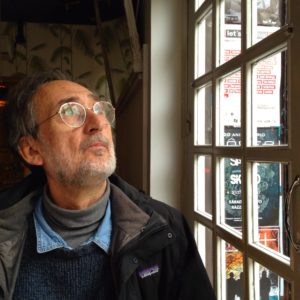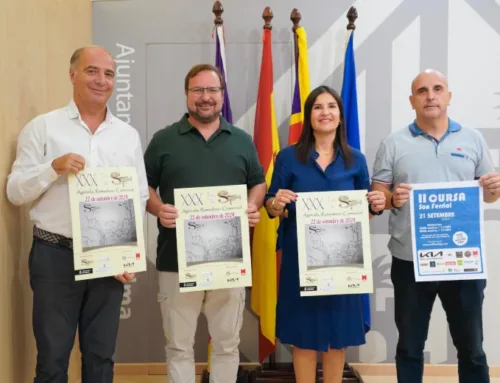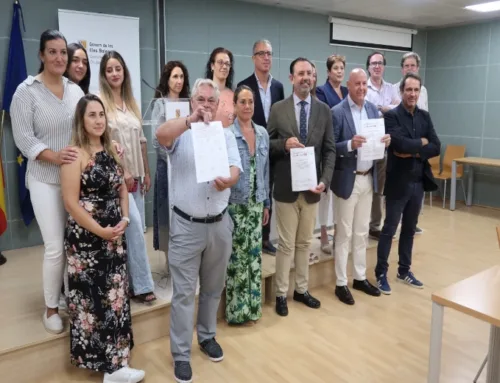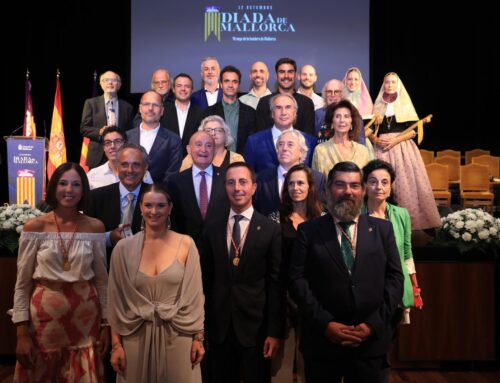Text: Carlos Garrido.

Carlos Garrido.
It was dawn and the truck was moving slowly. The road was in poor condition, and the vehicle shook with every pothole, every crack. The driver clicked his tongue in annoyance as he turned into the street. So straight and so steep. Upon entering, several shadows emerged from the ruined houses. They surged forward. They called out, they begged. He barely understood what they were asking for. But he knew, nonetheless.
“Alright, let’s give them something”, he said turning to the truck bed. And his two workers, both equally reluctant, retrieved some broken potatoes, dried lettuce leaves and a crushed cabbage. They were tossed out, and while the ragged mob desperately fought over them, the driver sped up as much as he could.
“Every day, same old story”, he muttered, looking in the rear-view mirror.
The early morning light cast shadows between the buildings. Most of them abandoned, windows open to the elements. The air smelled dirty and musty. Eyes watched them from the occasional doorway. The driver was scared. He preferred country roads, which, while muddy and untended, proved to be safe and quiet. Even the old buildings on the coast, where only a few vagrants lived, didn’t frighten him so.
But to him these dark streets at the heart of Palma, so strewn with piles of brick and rubble, always seemed reminiscent of a battle. And it wouldn’t be the first time. “Here they killed Joan de Jornets”, he said to himself, finishing his cigarette. “But what’s a man to do? We all have to make a living”, he said to himself. Same as bringing the goods to market each day.
Upon reaching La Rambla he could feel his anxiety slowly dissipating. There he would always see some passer-by. Even the odd police officer. However, he could not help but be saddened by the dirty facades, the graffitied walls, the smouldering fires, the rusted cars.
“I’d rather walk through a graveyard”, he thought. In the Fora Vila they went hungry and lacked even basic needs, but they did not feel the terrible toll of a world fallen. Its only remains faded advertisements, bricked-up government buildings, displaced people, black markets and screams in the night.
In the market, the merchants were setting up their stalls, laden with the few products available to them. “So, what have you brought me today?”, asked his regular buyer. “But I can only pay you a little, eh? I don’t have money, my friend”, he added.
The driver sighed. Same old story…
Then Paquito appeared. That old man barely capable of speech. He approached hunched over, half of his body paralyzed. No one had treated him after he had a stroke. He lived in misery. The driver felt a mixture of pity and revulsion towards him.
Paquito mumbled some unintelligible phrases. And the driver gave him a cigarette. “Oh fine, here. Now go, eh?”
Paquito looked overjoyed. But did not leave. He did the same as he always did. He showed him a postcard from Palma. Tattered and wrinkled. Yet alive with colour, strolling people, the cars, the tourists. He pointed to the date written on the back: 2019.
The driver patted him on the back. “You’re a persistent one, Paquito. That’s enough of living in the past. It’s 2030 you old coot.”
Paquito gazed at his postcard as he greedily sucked on his cigarette.
A phrase came to mind the driver had heard on the radio. He repeated it like a mantra: “Look at it this way Paquito. If the past had planned for the future, we wouldn’t have this present”.







Leave A Comment